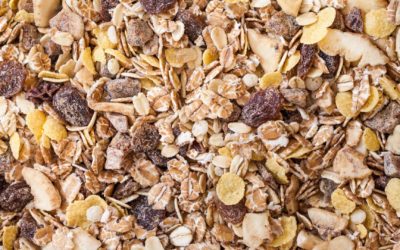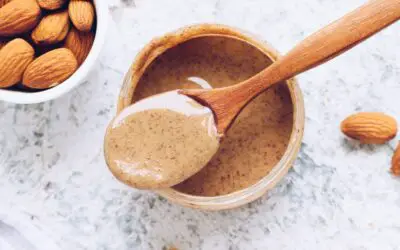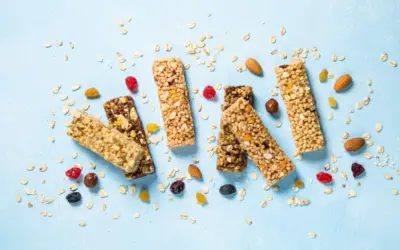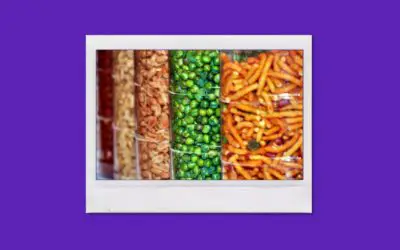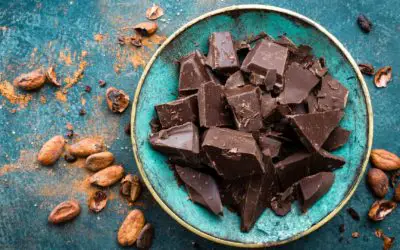
Muesli vs Granola
Granola and muesli look similar, both having common ingredients such as rolled oats, wheat bran, sultanas, and sunflower seeds etc. This makes some wonder about whether they are the same product. The short answer is no, and we will delve into their differences in this article.
What is a muesli?

First, let us understand what a muesli is and what it consists of. It is primarily made of rolled oats, and a mix of nuts, seeds, and dried fruits. Other types of grains can be used, such as quinoa, kaniwa, wheat, millet, rye, and barley. This dish was created by a Swiss doctor in the late 19th century and is more well received in Europe than in America as a breakfast item. Muesli is mostly enjoyed by soaking it overnight in milk, apple juice or orange juice so that it softens and becomes more liquid-like, then eaten cold. Alternatively, it may be eaten hot by cooking it with hot water or milk on a stove.
What is a granola?

A granola is a common breakfast item in American homes. It consists of oats, nuts, dried fruits, canola oil and sweeteners such as raw sugar, maple syrup, honey, or cane sugar. It is usually baked, resulting in a crunchy texture. Because the sweeteners are added, granolas have a stickier feel to it and the components of it are all stuck together, thus they can be eaten as a handy snack. They can also be eaten like a cereal by adding milk onto it, or it can be added to yoghurt to add some crunch and sweetness.
What are their differences?

The main difference is that a muesli is usually raw and not baked, while a granola is baked. Second, a muesli can be eaten cold or hot, while granolas are usually served cold (with yoghurt or milk) and can be eaten on its own. Third, while both contain common ingredients such as rolled oats, nuts, and dried fruits etc., granolas contain oil and sweeteners while muesli does not. This is the reason for granolas being stickier, while muesli tends to have more loose and scattered components. Muesli tends to taste drier and hence have to be soaked in liquids so that the grains can absorb the moisture and soften, while granolas already have a sweet taste and moisture from the oils.
They may also differ in nutrition. As granola contains sweeteners, the sugar and calorie content of granola is higher than that of muesli.
Benefits of granola
The benefits of granola depend on each individual product, as the proportions of the components in it may differ. If the product contains more sweeteners or dried fruits coated with sugar, chances are that the sugar content is higher. If there are more nuts and seeds in the mix, it will provide a higher protein content. Similarly, if there are more grains and oat, the fiber content will be higher.
Let us take a look at fiber. Fiber helps to increase the duration of digestion, making one feel fuller and less easily hungry, hence helping with the amount of food consumption and weight management. Fiber is also important for gut health, to clean the intestines and promote bowel movement. Fiber-rich ingredients such as oats and flax seeds help to lower blood pressure. It may also help to lower “bad” cholesterol levels.
Moving on to protein, your granola may have ingredients such as cashews, almonds, walnuts, pumpkin seeds, and sesame seeds that are rich in protein. Protein is needed for building muscles and transporting oxygen molecules around the body. Thus, granolas are good for athletes who play sports with high aerobic activity. Lastly, look out for ingredients such as Brazil nuts, coconuts, and chia seeds as they are good sources of antioxidants.
Benefits of muesli
The benefits are similar to that of granolas because the base ingredients are similar. Muesli is rich in fiber since it is made up of grains and oats. An added benefit of consuming muesli that granola does not have is that it can help to neutralize the phytic acid present in raw oats when the muesli is soaked overnight. Phytic acid restricts the absorption of iron, zinc, and calcium into your body. Hence, by adding some lemon juice into your muesli and soaking it for at least 12 hours, it reduces the effectiveness of phytic acid and allows your body to absorb those nutrients.
Some tips: You can replace full cream milk with skimmed milk, almond milk, soy milk or nut milk for a healthier option. Different mixes of granolas and muesli contain an assortment of nuts, seeds, and dried fruits. Choose those where oats and grains come up first in the ingredients list and skip those where sweeteners make up a high percentage of the cereals. Lastly, a good muesli or granola would be one where there is at least three to five grams of fiber per serving.
Choosing between granolas and muesli
Granolas and muesli are very healthy alternatives to conventional carton breakfast cereals. They contain more fiber, protein, and nutritional benefits. Between the two, you could choose granolas if you are short of time and want a quick bite. Otherwise, you should choose muesli as they do not contain sweeteners and oil, and can reap the benefits of soaking the oats overnight. The Deluxe Breakfast Muesli is our pick of the day, because it contains no artificial flavoring or colours, so you can be sure that you are getting the most organic and natural goodness. Remember to always eat in moderation and you will have enough energy to sustain throughout the day.

